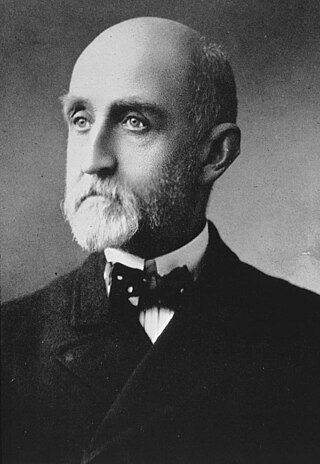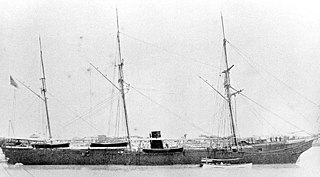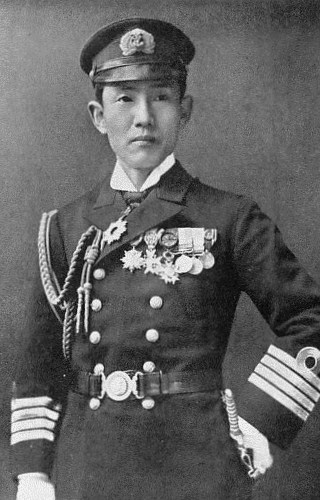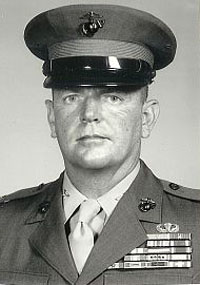Related Research Articles

Quogue is a village in the Town of Southampton in Suffolk County, on the South Fork of Long Island, in New York, United States. As of the 2010 United States Census, the population was 967, down from 1,018 at the 2000 census.

Alfred Thayer Mahan was a United States naval officer and historian, whom John Keegan called "the most important American strategist of the nineteenth century." His 1890 book The Influence of Sea Power Upon History, 1660–1783 won immediate recognition, especially in Europe, and with the publication of its 1892 successor, The Influence of Sea Power Upon the French Revolution and Empire, 1793–1812, he affirmed his status as a globally-known and regarded military strategist, historian, and theorist. Mahan's works encouraged the development of large capital ships -- eventually leading to dreadnought battleships -- as he was an advocate of the 'decisive battle' and of naval blockades. Critics, however, charged him with failing to adequately explain the rise of largely land-based empires, such as the German or Ottoman Empires, though Mahan did accurately predict the Ottoman's and Germany's defeat in World War I. Mahan directly influenced the dominant interwar period and World War II-era Japanese naval doctrine of the "decisive battle doctrine", and he became a "household name" in Germany. He also promoted American control over Hawaii though he was "lukewarm" in regards to American imperialism in general. Four U.S. Navy ships have borne his name, as well as various buildings and roads; and his works are still read, discussed, and debated in military, historical, and scholarly circles.

The Naval War College is the staff college and "Home of Thought" for the United States Navy at Naval Station Newport in Newport, Rhode Island. The NWC educates and develops leaders, supports defining the future Navy and associated roles and missions, supports combat readiness, and strengthens global maritime partnerships.

USS Mahan (DDG-72) is an Arleigh Burke-class destroyer currently in service with the United States Navy. This ship is the 22nd destroyer of her class. USS Mahan was the 12th ship of this class to be built at Bath Iron Works in Bath, Maine, and construction began on 17 August 1995. She was launched and christened on 29 June 1996. On 14 February 1998 she was commissioned in Tampa, Florida. Mahan is homeported in Norfolk, Virginia, and as of 2012 was attached to Destroyer Squadron 2. By 2016, the ship was part of Destroyer Squadron 22.

USS Mahan (DD-102) was a Wickes-class destroyer built for the United States Navy. Commissioned in 1918, Mahan was a flush deck destroyer, and the first ship to be named for Rear Admiral Alfred Thayer Mahan. Her main battery consisted of four 4-inch/50 caliber guns.

John Brewster Hattendorf, FRHistS, FSNR, is an American naval historian. He is the author, co-author, editor, or co-editor of more than fifty books, mainly on British and American maritime history and naval warfare. In 2005, the U.S. Naval Institute Proceedings described him as "one of the most widely known and well-respected naval historians in the world." In reference to his work on the history of naval strategy, an academic in Britain termed him the "doyen of US naval educators." A Dutch scholar went further to say that Hattendorf "may rightly be called one of the most influential maritime historians in the world." From 1984 to 2016, he was the Ernest J. King Professor of Maritime History at the United States Naval War College in Newport, Rhode Island. He has called maritime history "a subject that touches on both the greatest moments of the human spirit as well as on the worst, including war." In 2011, the Naval War College announced the establishment of the Hattendorf Prize for Distinguished Original Research in Maritime History, named for him. The 2014 Oxford Naval Conference - "Strategy and the Sea" - celebrated his distinguished career on April 10–12, 2014. The proceedings of the conference were published as a festschrift. In March 2016, Hattendorf received the higher doctorate of Doctor of Letters (D.Litt.) from the University of Oxford. Among the few Americans to have earned this academic degree at Oxford, Hattendorf remained actively engaged on the Naval War College campus after his formal retirement in 2016.

The Influence of Sea Power upon History: 1660–1783 is a history of naval warfare published in 1890 by the American naval officer and historian Alfred Thayer Mahan. It details the role of sea power during the seventeenth and eighteenth centuries, and discussed the various factors needed to support and achieve sea power, with emphasis on having the largest and most powerful fleet. Scholars considered it the single most influential book in naval strategy. Its policies were quickly adopted by most major navies, ultimately leading to the World War I naval arms race. It is also cited as one of the contributing factors of the United States becoming a great power. It was followed by The Influence of Sea Power upon the French Revolution and Empire, 1793–1812, published in 1892.

Proceedings is a 96-page monthly magazine published by the U.S. Naval Institute. Launched in 1874, it is one of the oldest continuously published magazines in the United States. Proceedings covers topics concerning global security and includes articles from military professionals and civilian experts, historical essays, book reviews, full-color photography, and reader commentary. Roughly a third are written by active-duty personnel, a third by retired military, and a third by civilians. Proceedings also frequently carries feature articles by Secretaries of Defense, Secretaries of the Navy, Chairmen of the Joint Chiefs of Staff, and top leaders of the Navy, Marine Corps and Coast Guard.

John Harris was a Union Navy sailor who received the Medal of Honor for his service on USS Metacomet in Mobile Bay during the American Civil War.

USS Wachusett – the first U.S. Navy ship to be so named – was a large (1,032-ton), Mohican-class steam sloop-of-war that served the United States Navy during the American Civil War. She was outfitted as a gunboat and used by the Navy as part of the Union blockade of the Confederate States of America.

Viscount Ogasawara Naganari was an Admiral and naval strategist in the Imperial Japanese Navy in Meiji and Taishō period Japan, and a member of the Imperial Japanese Navy General Staff. He was also known as Ogasawara Chōsei, Ogasawara Nagayo.
Elmer Belmont "Ned" Potter was an American historian and writer.

John Grider Miller was a colonel in the United States Marine Corps, who served as managing editor of U.S. Naval Institute Proceedings and of Naval History.
Alec Lorimore is a twice Academy Award-nominated film producer and screenwriter who has concentrated his focus in creating giant screen, IMAX documentary films. He is credited as one of the three producers of 1998 IMAX film Everest, which had generated over $140 million in worldwide box office, making it the highest grossing IMAX documentary film of the time.

The Hattendorf Prize for Distinguished Original Research in Maritime History is awarded by the United States Naval War College for distinguished academic achievement in publishing original research that contributes to a deeper historical understanding of the broad context and interrelationships involved in the roles, contributions, limitations, and uses of the sea services in history. The prize is awarded approximately every two years and consists of a $10,000 cash prize, a specially designed bronze medal, and a citation. The Prize Laureate is expected to deliver a lecture at the United States Naval War College on the occasion of the award.

William Dilworth Puleston was an American naval officer and author. He was Director of Naval Intelligence from 1934 to 1937. He was considered "a popular, articulate and aggressive officer" and "an ideal planner, a student of world history and foreign affairs".

William McCarty Little was a United States Navy officer of the late 19th century. He is most noted for his contributions to the development of naval wargaming at the United States Naval War College in Newport, Rhode Island.
Thomas Joshua Cutler is a retired United States naval officer, naval historian, author, and editor. He is "one of the most prolific authors in the history of the Naval Institute Press in terms of sold books."

Philip M. Bilden is an American businessman and private equity & venture capital investor. He was nominated by President Donald Trump to serve as the 76th United States Secretary of the Navy in January, 2017, although he subsequently withdrew himself from consideration. He is a philanthropist and advocate for national security, the U.S. Navy, and cybersecurity.
James Kraska is an internationally acclaimed American scholar and a distinguished professor of public international maritime law specializing in the international law of the sea and the law of maritime operations, and naval warfare. He is the current Chairman and Charles H. Stockton Professor of International Maritime Law at Stockton Center for International Law, United States Naval War College. He is also a Visiting Professor of Law and John Harvey Gregory Lecturer on World Organization at Harvard Law School.
References
- ↑ "Navy League of the United States Award Manual" (PDF). navyleague.org. Arlington VA: Navy League of the United States. p. 6. Archived from the original (PDF) on 2015-07-03. Retrieved 2015-06-27.